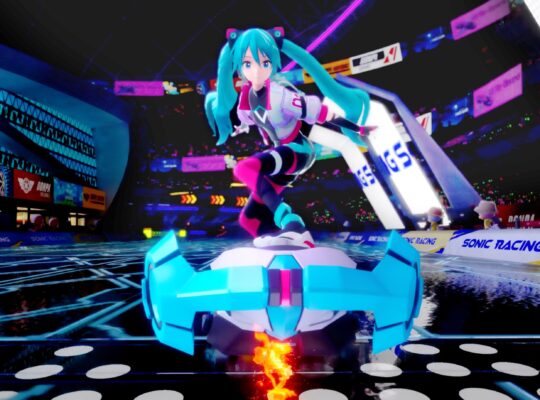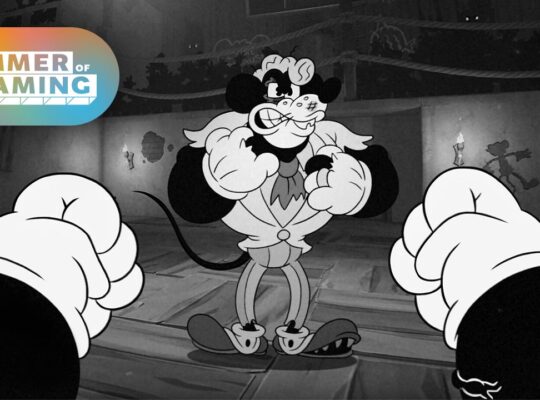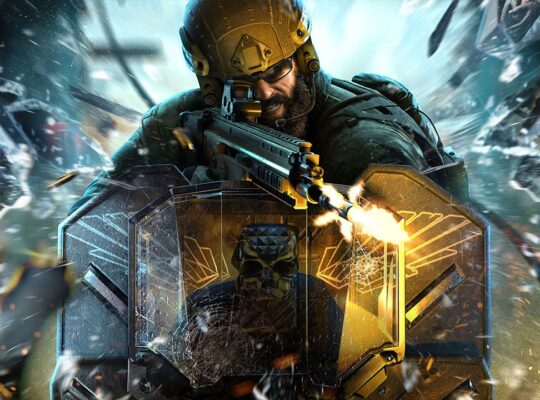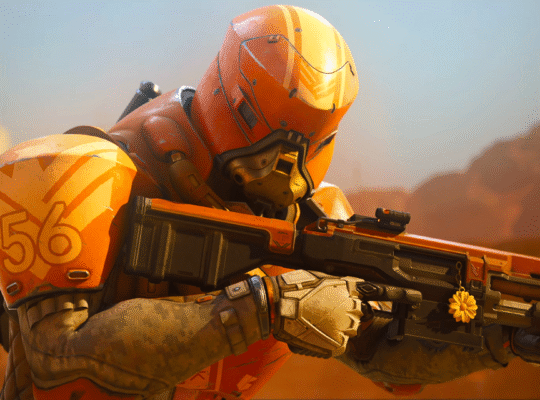
Capcom has been firing on all cylinders with its marquee franchises – Monster Hunter is seeing increasing success, the Resident Evil train is continuing to roll, and Street Fighter continues to be a staple in the fighting game community. It has a new Onimusha on the way, and the last time we saw Devil May Cry was on a high note. But every now and then, Capcom experiments with something new, to varying degrees of success. And that latest experiment is in Pragmata, a sci-fi third-person shooter that stole the show for me at Summer Game Fest 2025 – even after just a brief 15-minute hands-on demo.
Another sci-fi third-person shooter may not sound too enticing on the surface, but Pragmata is an example of how a single idea can go a long way in distinguishing a game from the rest of the pack. Here’s the thing – in Pragmata you don’t just damage your enemies by shooting them, you have to hack them to open up their weaknesses. The way this works is by aiming down sights and engaging in a hacking minigame where you navigate a five-by-five grid using the face buttons to draw a path that connects specific nodes together. And you have to do this in real-time. Along that path, you can hit additional nodes to inflict status effects or open up weak spots, which can be risky when you’re locked in a room of multiple menacing robots chasing you down.
If you’re nimble enough with your rocket-boosted dodge and smart with your positioning, you can pull this off unscathed, and it is so damn satisfying when it all comes together. When you’re mostly fighting in tight spaces, creating space to hack and shoot can be challenging. Pragmata isn’t exactly a fast-paced game in the same way as Vanquish or Returnal, and it moves more like a Dead Space or Gears of War, and I enjoy that chunky, heavy feel. You’re also not outfitted with a ton of weapons – while you have a six-shot pistol with unlimited magazines, you pick up disposable weapons like a slow, powerful heavy rifle and a Bola gun to temporarily immobilize enemies. These effective, limited-use weapons push you to be more resourceful and make combat more interesting.
Since you’re not blasting through waves of robots and drones, the combat encounters feel more deliberate – and I think that’s important for not overdoing it with the hacking minigame. My worry for now is that the novelty of the hacking minigame will wear off the deeper you get into Pragmata, but that’ll be determined by how the gameplay mechanics evolve and the way further combat encounters present new challenges. I’m actually bummed that the demo ends right when you approached a huge mech for what appeared to be a boss fight because it could’ve been an opportunity to showcase more of Pragmata’s potential.
Hacking is also integrated in environmental puzzles and exploration, presenting you with different styles of sequential button prompts to deactivate security locks or access terminals. Little things like this to break up the pace are important in a fairly linear game where you’re chomping at the bit for the next big fight. You need that variety to balance out even the best parts of a campaign, and I at least enjoy the fact that engaging with levels still revolves around the hacking premise in some form.
Whether it be in combat or in exploration, I find a lot of fun in games that give you a more active element to engage with in its core gameplay. Although completely different genres, the timing-based mechanics of Clair Obscur: Expedition 33 made its turn-based RPG combat feel fresh, and even the gesture-based inputs for abilities in Scarlet Nexus were a fun way to distinguish itself from other action-RPGs, which I still praise to this day. If Pragmata can build on its best ideas in smart ways, it might be able to wedge itself into this conversation.
The demo didn’t have much in terms of story (and I’m glad it focused on its enticing gameplay hook instead), but it does leave me curious as to what the hell is going on in Pragmata. The basic premise is that you’re stuck on a high-tech space station on the moon, and you control a man named Hugh who dons a mech suit and uses a small arsenal of high-powered firearms, all while a mysterious little girl named Diana, who’s the hacking genius, sits on your shoulders to hack enemies. But even if the story is simply a vehicle to take you through its uniquely thrilling combat scenarios, I’m inclined to believe that’s all it has to be.
I had no idea what Pragmata was when it was first revealed in 2020, and after years of silence and delays, we know that it’s real and on its way in 2026. I’m not expecting it to be the next greatest game or become a pillar of Capcom’s catalog, necessarily, but I’m all for new and well-executed ideas – especially at a time when AAA releases sometimes blend with each other.












